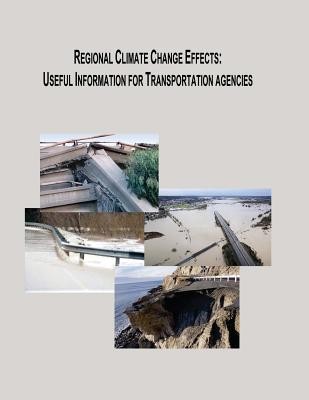
- We will send in 10–14 business days.
- Author: Federal Highway Administration
- Publisher: CreateSpace Independent Publishing Platform
- Year: 2015
- Pages: 312
- ISBN-10: 1508526699
- ISBN-13: 9781508526698
- Format: 21.6 x 28 x 1.7 cm, softcover
- Language: English
- SAVE -10% with code: EXTRA
Reviews
Description
The changing climate poses serious challenges to the transportation community, given the community's need to watch over transportation systems and infrastructure designed to last decades or longer. Transportation functions tied to construction, operations, maintenance, and planning should be grounded in an understanding of the environment expected to support transportation facilities. Decisions therefore need to be informed by an understanding of potential future changes in climate. The understanding of climate change science and the ability to model future change continues to advance, resulting in more precise estimates of future changes in climate. However, the practitioner can be overwhelmed by the sheer volume of information, including the ensemble of models employed, the variety of emissions scenarios used to drive the modeling results, the spatial resolution of the projected climate effects, and other parameters. The purpose of this report is to provide the transportation community (including highway engineers, planners, NEPA practitioners) with digestible, transparent, regional information on projected climate change effects that are most relevant to the U.S. highway system. This information is designed to inform assessments of the risks and vulnerabilities facing the current transportation system, and can inform planning and project development activities. The information in this report can help decision makers begin to address the challenges posed by climate change. It fills an important gap by providing the transportation community with information on climate change and the range of future changes in a usable format. It provides the most up-to-date information available, and is the place to start when seeking to understand how climate change may affect transportation systems and infrastructure. At the same time, this report does not answer every question on future climate change effects; research continues to progress on improving techniques for projecting and assessing climate effects and understanding extreme weather events. In the coming years, model simulations of the effect of changes in greenhouse gas concentrations on the climate will improve, and downscaling techniques that provide finer-scale climate projections will continue to evolve.
EXTRA 10 % discount with code: EXTRA
The promotion ends in 19d.21:29:21
The discount code is valid when purchasing from 10 €. Discounts do not stack.
- Author: Federal Highway Administration
- Publisher: CreateSpace Independent Publishing Platform
- Year: 2015
- Pages: 312
- ISBN-10: 1508526699
- ISBN-13: 9781508526698
- Format: 21.6 x 28 x 1.7 cm, softcover
- Language: English English
The changing climate poses serious challenges to the transportation community, given the community's need to watch over transportation systems and infrastructure designed to last decades or longer. Transportation functions tied to construction, operations, maintenance, and planning should be grounded in an understanding of the environment expected to support transportation facilities. Decisions therefore need to be informed by an understanding of potential future changes in climate. The understanding of climate change science and the ability to model future change continues to advance, resulting in more precise estimates of future changes in climate. However, the practitioner can be overwhelmed by the sheer volume of information, including the ensemble of models employed, the variety of emissions scenarios used to drive the modeling results, the spatial resolution of the projected climate effects, and other parameters. The purpose of this report is to provide the transportation community (including highway engineers, planners, NEPA practitioners) with digestible, transparent, regional information on projected climate change effects that are most relevant to the U.S. highway system. This information is designed to inform assessments of the risks and vulnerabilities facing the current transportation system, and can inform planning and project development activities. The information in this report can help decision makers begin to address the challenges posed by climate change. It fills an important gap by providing the transportation community with information on climate change and the range of future changes in a usable format. It provides the most up-to-date information available, and is the place to start when seeking to understand how climate change may affect transportation systems and infrastructure. At the same time, this report does not answer every question on future climate change effects; research continues to progress on improving techniques for projecting and assessing climate effects and understanding extreme weather events. In the coming years, model simulations of the effect of changes in greenhouse gas concentrations on the climate will improve, and downscaling techniques that provide finer-scale climate projections will continue to evolve.


Reviews